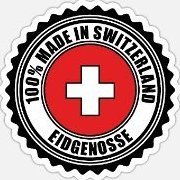[Myanmar] Ethnic Armies’ Role In Burma Drug Trade Off Table At Six-Nation Talks
-
Recently Browsing 0 members
- No registered users viewing this page.
-
Topics
-
-
Popular Contributors
-
-
Latest posts...
-
282
The Thumbs Down Syndrome
I can see his name with no others. See it a lot. No magic required. He never says anything. -
26
Report Thailand Eyes Passenger Fee Hike to Fund Airport Upgrades
https://www.fodors.com/news/news/what-is-the-united-states-250-visa-integrity-fee -
27
For Americans with Social Security Questions
Not doing a good job at explaining myself 🙂 I get it is my money. If I don't need it, then why take it? I'm not trying to die with more money and I simply strive to live a good life today. Having the extra money would add no value at 63 or 67. Knowing if something went wrong but I still had a $2,500 check vs $1,500 (63 yo benefit) does add value. In the end it doesn't make much difference either way but think I will just take it as late as possible since it would just be put into savings/investments anyhow... -
282
The Thumbs Down Syndrome
The mods see who gives emotions, so they knows who is the stalkers here if they want to check Everyone should be given 3 of negative emotions to give every day, and I know some forums had it before, a limit of how many emotions you could give pr day -
24
Crime French National Arrested in Bangkok for Child Exploitation
Brilliant!!! After that, feed a stray dog with his saucisson and a couple of creamy French scrambled eggs. What a culinary delight😂- 1
-

-
229
2025 SSA Form 7162 - "Hello, are you dead yet?" forms.
Actually, I was about to go out to the post office today and return a copy of the form from last year that has all the information and barcodes on it. But I thought I would check here first and maybe get ready for a second mailing in a week or so of a purely blank form. Where are you going to fax it? Manila? As referred above MySocialSecurity has an upload function on it, but SSA disabled it for those of us living outside the US.
-
-
Popular in The Pub









.thumb.jpg.82631abb512ae61a745d964452c5b1b9.jpg)

Recommended Posts
Create an account or sign in to comment
You need to be a member in order to leave a comment
Create an account
Sign up for a new account in our community. It's easy!
Register a new accountSign in
Already have an account? Sign in here.
Sign In Now